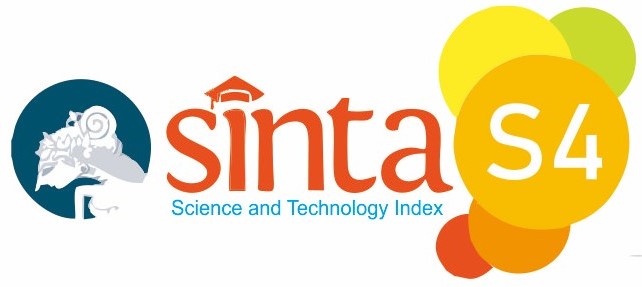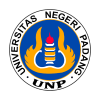PENGARUH KOMPETENSI PRAKTIKUM PEMESINAN DAN PENGALAMAN PRAKTIK KERJA LAPANGAN DALAM MENINGKATKAN MINAT BERWIRAUSAHA
Abstract
Penelitian ini bertujuan untuk mengevaluasi pengaruh antara kompetensi praktik pemesinan dan pengalaman kerja lapangan dengan minat berwirausaha siswa Teknik Pemesinan di SMK Negeri 1 Sumatera Barat, baik secara parsial maupun simultan. Metode penelitian yang digunakan adalah kuantitatif dengan analisis statistik menggunakan lembar penelitian dan kuesioner kepada 116 siswa kelas XI dan XII Teknik Pemesinan pada tahun ajaran 2023/2024. Data dikumpulkan melalui pengamatan historis nilai siswa dan pengisian kuesioner offline dan online. Analisis data melibatkan statistik deskriptif, pengujian asumsi klasik, analisis korelasi, koefisien determinasi, dan pengujian hipotesis. Hasil penelitian menunjukkan bahwa tidak ada pengaruh signifikan dari variabel X1 (kompetensi praktikum pemesinan) dan X2 (praktik kerja lapangan) terhadap variabel Y (minat berwirausaha) pada siswa SMK Negeri 1 Sumatera Barat. Korelasi antara kedua variabel tersebut sangat rendah, menunjukkan bahwa aspek praktikum dan PKL belum mampu secara substansial meningkatkan minat siswa untuk berwirausaha. Temuan ini menunjukkan bahwa faktor-faktor lain seperti kualitas pembelajaran, fasilitas praktikum, motivasi siswa, dan dukungan keluarga serta industri mungkin memiliki peran yang lebih dominan dalam membentuk minat berwirausaha siswa. Implikasi dari penelitian ini adalah pentingnya meningkatkan integrasi kurikulum kejuruan dengan kebutuhan industri dan memperkuat aspek pengembangan keterampilan kewirausahaan dalam pendidikan kejuruan, untuk mempersiapkan lulusan SMK yang lebih siap bersaing di dunia kerja yang semakin kompleks.
References
Almulla, M. A. (2020). The Effectiveness of the Project-Based Learning (PBL) Approach as a Way to Engage Students in Learning. SAGE Open, 10(3), 1–15. https://doi.org/10.1177/2158244020938702
Behl, A., Pereira, V., Nigam, A., Wamba, S., & Sindhwani, R. (2023). Knowledge development in non-fungible tokens (NFT): a scoping review. Journal of Knowledge Management, 26(11), 1–36. https://doi.org/10.1108/JKM-12-2022-0937
Bunyamin, B., Samsudi, S., & Rohman, S. (2022). Soft Skill Improvement Strategy for Vocational High School Students Base on Career and 21st Century Learning Oriented. Journal of Vocational Career Education, 7(1), 65–77. https://doi.org/10.15294/jvce.v7i1.41103
Fortuna, A., Prasetya, F., Luis, J., García, C., Maria, J., Salman, A., Karimi, A., & Yusuf, A. (2024). Modern learning paradigms : A bibliometric analysis of augmented reality and virtual reality in vocational education. Jurnal Pendidikan Teknologi Kejuruan, 7(2), 91–114. https://doi.org/10.24036/jptk.v7i2.36523
Habibi, M., Sunardi, & Sudiyanto. (2022). Identification of Opportunities for Utilizing E-Modules with a Problem Based Learning Approach to Facilitate Learning in Vocational High Schools. Jurnal Edutech Undiksha, 10(2), 311–322. https://doi.org/10.23887/jeu.v10i2.52722
Hayes, A. F., & Coutts, J. J. (2020). Use Omega Rather than Cronbach’s Alpha for Estimating Reliability. But…. Communication Methods and Measures, 14(1), 1–24. https://doi.org/10.1080/19312458.2020.1718629
Indrawati, S. M., & Kuncoro, A. (2021). Improving Competitiveness Through Vocational and Higher Education: Indonesia’s Vision For Human Capital Development In 2019–2024. Bulletin of Indonesian Economic Studies, 57(1), 29–59. https://doi.org/10.1080/00074918.2021.1909692
Jawad, L. F., Majeed, B. H., & Alrikabi, H. T. S. (2021). The Impact of Teaching by Using STEM Approach in The Development of Creative Thinking and Mathematical Achievement Among the Students of The Fourth Scientific Class. International Journal of Interactive Mobile Technologies, 15(13), 172–188. https://doi.org/10.3991/ijim.v15i13.24185
Maryanti, R., Hufad, A., Sunardi, S., Nandiyanto, A. B. D., & Kurniawan, T. (2021). Analysis of curriculum for science education for students with special needs in vocational high schools. Journal of Technical Education and Training, 13(3), 54–66. https://doi.org/10.30880/jtet.2021.13.03.006
Mubai, A., Ambiyar, Irfan, D., & Rasul, M. S. (2023). Flipped Direct Instruction (FDI): A New Practicum Learning Model in Vocational Education. International Journal of Learning, Teaching and Educational Research, 22(7), 547–565. https://doi.org/10.26803/ijlter.22.7.29
Pakan, S. P. (2022). Waves for development? Local perceptions on surf tourism retribution in Mentawai Islands. Journal of Policy Research in Tourism, Leisure and Events, 1–14. https://doi.org/10.1080/19407963.2022.2047989
Piwowar-Sulej, K. (2021). Human resources development as an element of sustainable HRM – with the focus on production engineers. Journal of Cleaner Production, 278, 124008. https://doi.org/10.1016/j.jclepro.2020.124008
Ramadhan, T., Irzal, I., Nurdin, H., & Primawati, P. (2023). Hubungan Minat Berwirausaha Dengan Mata Pelajaran Produk Kreatif dan Kewirausahaan di SMK Negeri 1 Lintau Buo. Jurnal Vokasi Mekanika (VoMek), 5(2), 130–134. https://doi.org/10.24036/vomek.v2i4.155
Sedyastuti, K., Suwarni, E., Rahadi, D. R., & Handayani, M. A. (2021). Human Resources Competency at Micro, Small and Medium Enterprises in Palembang Songket Industry. Proceedings of the 2nd Annual Conference on Social Science and Humanities (ANCOSH 2020), 248–251. https://doi.org/10.2991/assehr.k.210413.057
Statistik, B. P. (2023). Open Unemployment Rate by Education Level 2020-2022. BPS.
Sultoni, Gunawan, I., & Novita Sari, D. (2020). Validity and Reliability of Character Education Internalization Instruments. Advances in Social Science, Education and Humanities Research, Volume 381 4th International Conference on Education and Management, 381, 245–249. https://doi.org/10.2991/coema-19.2019.50
Taherdoost, H. (2022). What are Different Research Approaches? Comprehensive Review of Qualitative, Quantitative, and Mixed Method Research, Their Applications, Types, and Limitations. Journal of Management Science & Engineering Research, 5(1), 53–63. https://doi.org/10.30564/jmser.v5i1.4538
Wagiran, Pardjono, Suyanto, W., Sofyan, H., Soenarto, S., & Yudantoko, A. (2019). Competencies of future vocational teachers: Perspective of in-service teachers and educational experts. Cakrawala Pendidikan, 38(2), 388–400. https://doi.org/10.21831/cp.v38i2.25393
Waskito, W., Wulansari, R. E., Rifelino, R., Fortuna, A., Nyamapfene, A., & Jalil, S. A. (2024). Constructivist Feedback-Based Assessment Method as Key for Effective Teaching and Learning: The Development and Impact on Mechanical Engineering Students’ Adaptive Capacity, Decision Making, Problem Solving and Creativity Skills. International Journal of Cognitive Research in Science, Engineering and Education, 12(1), 57–76. https://doi.org/10.23947/2334-8496-2024-12-1-57-76
Young, M., & Hordern, J. (2020). Does the vocational curriculum have a future? Journal of Vocational Education & Training, 74(1), 68–88. https://doi.org/10.1080/13636820.2020.1833078
Submitted
Copyright (c) 2024 Jurnal Vokasi Mekanika

This work is licensed under a Creative Commons Attribution 4.0 International License.








.svg_.png)


